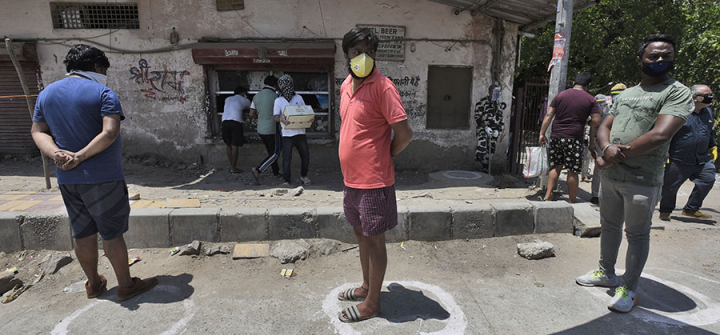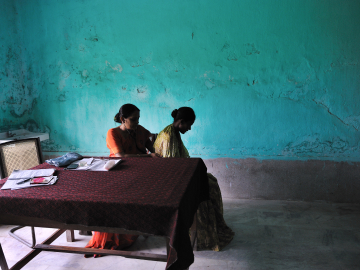Alcohol: Bad for Indian Outbreak, Worse for Indian Economy
As India attempts to roll back the national lockdown, one of the first moves of the state governments has been to open up the liquor stores.
Initial liquor sales worth millions of dollars have been reported across different parts of India. Maharashtra state, for example, reported sales worth 62 crore rupees in a day (equivalent to US$8.2 million) from 1.6 million liters of alcohol, fetching its state government US$4.1 million in excise duty revenue. Uttar Pradesh, India’s most populous state, sold liquor worth US$13.2 million on its first day, while Karnataka reported sales of $26 million on the second day of reopening of stores.
The states’ prioritization of opening liquor stores was financially motivated. In 2018–19, the state governments in India earned collective revenue of US$19.8 billion from alcohol sales. For all states, the excise duties on liquor are considered the second or third largest source of State’s Own Tax revenue. India’s dependence on alcohol revenues is much greater compared to developed economies like the US and the UK that garner US$10 billion and US$13.05 billion respectively from alcohol excise duties. These numbers make a seemingly strong case for alcohol coming to the rescue of the struggling Indian economy—or at least government finances.
However, the reality is far different. During COVID-19, alcohol can add significantly to India’s misery for multiple reasons. First, people thronging the liquor stores broke the social distancing rules. From mile-long queues to traffic jams, various cities including the capital of Delhi witnessed the chaos that could very well lead to infections. Second, one doesn’t need to be an expert to speculate that a large number of the first-day buyers are those who are dependent if not addicted to alcohol. Using vulnerable people for profits seems unethical for any government. Third, moderate and heavy alcohol use are known to be involved in the disruption of immune pathways leading to increased risk for pneumonia, tuberculosis, and other respiratory conditions. Increased alcohol consumption increases the risk of hypertension, diabetes mellitus, ischemic heart disease, cancers, etc. These underlying conditions are known to increase the risk of death from COVID-19.
Fourth, we cannot forget alcohol’s pre-COVID-19 toll. In 2017, alcohol was responsible for more than 580,000 deaths in India, according to the Global Burden of Disease Results Tool. The 3 leading causes of alcohol attributable deaths are tuberculosis, road injuries, and self-harm—all conditions having an existing large burden in India. Hence, opening up liquor stores can put people at risk for SARS-CoV-2 infection.
And finally, alcohol is bad for the Indian economy in the long run. A recent comprehensive modeling study suggests that a loss of 543 million life-years due to alcohol-led afflictions would add up to an economic loss of US$71.6 billion between 2011–2050. When health care costs and other losses to the economy (health system financing, out-of-pocket expenses, productivity losses, etc.) are included the total can be up to US$2.77 trillion (US$2.2 trillion if we deduct tax revenues). This means that economically, every year, India loses 1.45% of its GDP due to alcohol. For a country that had total public health spending of 1.28% of its GDP in 2018, opening up liquor stores is a financially poor strategy.
Ethically, medically, and financially, opening liquor stores during a pandemic does more harm than good to India and its people. Momentary boosts to the economy and government coffers in no way should be allowed to create immediate health risks or long-term financial losses for the country.
The exit plan from the world’s biggest lockdown in a democracy of a billion people needs to involve people’s welfare instead of government’s monetary interests.
Siddhesh Zadey is a graduate student at Duke Global Health Institute working on alcohol use in low-and-middle-income countries. He also leads a nonprofit research group called Asar that focuses on data-led local policymaking in India.
For the latest, most reliable COVID-19 insights from some of the world’s most respected global health experts, see Global Health NOW’s COVID-19 Expert Reality Check.
Join the tens of thousands of subscribers who rely on Global Health NOW summaries and exclusive articles for the latest public health news. Sign up for our free weekday enewsletter, and please share the link with friends and colleagues: https://www.globalhealthnow.org/subscribe
People wait in line to buy alcohol outside a liquor store in New Delhi, India. May 8, 2020 Image: Burhaan Kinu/Hindustan Times/Getty





